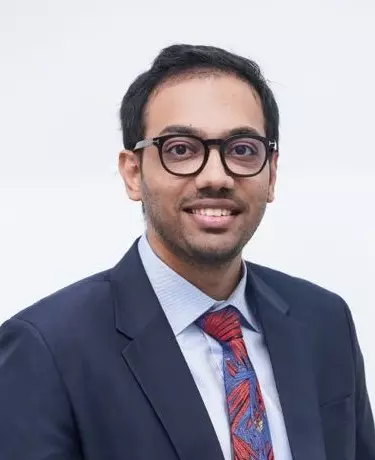Intersection of Breast Cancer and Bone Health: A Case for Shared Monitoring - Dr Saadvik Raghuram Y

For most breast cancer survivors, the battle doesn’t end with remission. While the focus often remains on keeping the cancer from returning, there’s a quieter struggle happening beneath the surface — within the bones. Treatments that save lives can also weaken the very framework that supports them.
As oncologists, we have grown adept at tracking tumor markers, interpreting scans, and adjusting therapies. But bone health often becomes collateral damage in this journey — a complication we anticipate, yet don’t always address early enough. This is where collaboration with endocrinologists is not just useful, but essential.
The Bone-Cancer Connection:
The relationship between breast cancer and bone health is two-fold. First, bone is one of the most common sites for metastasis in breast cancer. Second, the therapies that protect against recurrence — especially hormone-modulating treatments — can accelerate bone loss.
In postmenopausal women, aromatase inhibitors (AIs) such as letrozole, anastrozole, or exemestane are standard for hormone receptor-positive breast cancer. They work by suppressing estrogen production — a key growth signal for certain tumors.
But estrogen is also a vital protector of bone density. The absence of this hormone leads to increased bone resorption, thinner trabeculae, and a greater risk of fractures.
It’s not just a theoretical risk. Several studies have shown that women on AIs can lose bone mass at two to three times the rate of normal postmenopausal bone loss. Over time, that translates into real consequences: vertebral fractures, chronic pain, and reduced mobility — all of which affect quality of life and even adherence to therapy.
A Shared Space Between Oncology and Endocrinology:
This is where our fields intersect in a meaningful way. Breast cancer management has evolved into a long-term, chronic care model. Patients are living longer, and the side effects of treatment are now a major determinant of overall well-being.
Yet, bone health is still treated as a secondary issue, often addressed only after a fracture or severe pain brings it to attention.
An endocrinologist’s perspective adds an entirely new dimension to survivorship care. They can identify subtle metabolic changes that oncologists may not have the bandwidth or training to monitor closely — calcium metabolism, parathyroid hormone levels, vitamin D deficiency, and bone turnover markers.
Dual monitoring makes sense. When an oncologist starts a patient on an AI, an endocrinologist can step in to perform a baseline bone mineral density (DEXA) scan, initiate calcium and vitamin D optimization, and plan periodic reassessments.
If bone loss is evident, early interventions — bisphosphonates, denosumab, or tailored lifestyle strategies — can prevent long-term damage.
Preventing Fragility in Survivorship:
In India, the challenge is even more pressing. Many postmenopausal women already have lower baseline bone density due to nutritional gaps, limited sunlight exposure, or sedentary habits. When a breast cancer diagnosis and subsequent hormonal therapy are layered on top, the risk multiplies.
This is why every oncology unit should have a standardized bone health protocol. Just as we do cardiac assessments before chemotherapy, we must also build bone assessments into our treatment planning. The conversation about bone health should start not after, but alongside, the cancer discussion.
Simple steps go a long way — encouraging weight-bearing exercise, ensuring adequate dietary calcium, and educating patients on bone-friendly habits. Even small changes, such as adding short daily walks or incorporating strength training post-recovery, can make measurable differences in bone strength and confidence.
The Psychological Factor:
Bone pain or fractures in a survivor often reignite anxiety — the fear that cancer has returned. This psychological weight is as heavy as the physical loss of mobility. If we can prevent or manage bone fragility proactively, we not only protect skeletal integrity but also help patients feel secure in their survivorship.
A Call for Integrated Care:
Breast cancer care has always been multidisciplinary — surgeons, medical oncologists, radiologists, and rehabilitation specialists work together. It’s time endocrinologists are formally included in this circle. Their expertise can bridge the gap between cancer cure and long-term health maintenance.
Some cancer centers abroad already have combined “bone and breast” clinics where both specialists see the patient together. Such models should inspire similar collaboration in Indian settings.
For teaching hospitals and cancer centers, this integration can also serve as a valuable training ground for young doctors who often view oncology and endocrinology as distant disciplines.
Looking Ahead:
As survival rates rise, the focus must shift from just living longer to living well. Bone health sits at the very core of that promise. A patient who survives breast cancer but struggles to stand tall or walk without pain deserves better from us.
Our therapies should heal, not hollow. Oncologists and endocrinologists must work hand in hand — because strong bones are as much a part of survivorship as a cancer-free scan.
Disclaimer: The views expressed in this article are of the author and not of Health Dialogues. The Editorial/Content team of Health Dialogues has not contributed to the writing/editing/packaging of this article.


